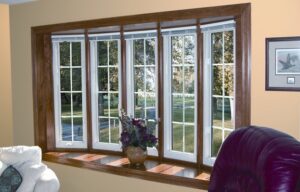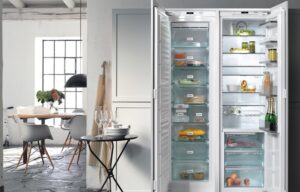
How to choose your windows?
Wood, aluminum or PVC, which material should you choose for your windows in order to be well insulated from noise and the cold? What certifications should be taken into account? To support you in your efforts, our experts advise you to ensure high-performance, functional and safe windows.
Why is it important to choose your windows well?
Windows are an essential element of comfort in your home. They are the ones that allow the entry of light and sun. They protect you from rain, wind or cold, but also from noise. They therefore play a fundamental role in the thermal and acoustic performance of your facade.
Checking the good condition of your windows must be done regularly. The protections that accompany them (closures, shutters, blinds) must be given the same attention.
How to properly replace your windows?
To fully understand your professional ( window-maker , carpenter ) when choosing your windows, here are some points of reference:
What are the different window materials?
Wood, aluminium, PVC , these are the three possible materials for your windows. The performances of these three types of materials for your windows are globally equivalent, but each has advantages and disadvantages.
aluminum
It is a resistant material, which does not rust, is easy to maintain and to recycle, but which insulates less well than wood or PVC. The frame of an aluminum window must therefore have a “ thermal break ”. This isolates the exterior face from the interior face of the window. Thus, a barrier against the cold is created, the captured heat is retained or the formation of condensation is limited, etc.
Wood
It is an excellent thermal insulator and a stable material. Wooden windows require maintenance. But techniques (varnish, paint, stain, etc.) have evolved and make it possible to limit maintenance to every 5 to 7 years depending on exposure to bad weather, compared to every 2 or 3 years previously.
Some post-war apartments have windows whose frames are made of steel and which therefore have poor technical performance . Do not hesitate to have them replaced or discuss them with your window specialist .
What are the different types of windows and their uses?
The most common window on vertical facades is that with two casements or casements opening inwards (also called French opening). It is also found in the form of a French window.
A tilt-and-turn window ( also called tilt-and-tilt) can open a leaf along a vertical or horizontal axis. This type of window can be opened without risk of slamming. It is particularly interesting for ventilating a kitchen or a bathroom.
The windows in sloping roofs , with manual or motorized opening, open either in rotation by a central pivot in the event of space in front of the low furniture type window, or in projection when the window is clear. Projection windows can also be rotated by rotating the window 180°.
There are also balcony windows where the leaves open, one upwards and the other in front to form an outward projection.
Get good thermal insulation by using double glazing
Currently, the glazing used is generally 4-16-4 double glazing. These numbers mean that there are two 4mm thick glasses separated by a 16mm space frequently filled with argon, a gas that is more insulating than air.
A thin transparent layer of metal oxides can be applied to the glass: this is solar control glazing technology. This not only makes it possible to reflect the infrared rays of the sun towards the outside and thus limit the entry of heat in summer, but also to reflect the thermal infrared towards the interior and limit the loss of heat by radiation in winter.
The double glazing is sufficient to have good insulation from a thermal and acoustic point of view. Note, in very cold regions , the choice of triple glazing , even more thermally insulating, can be considered.
If, despite asymmetrical windows, outside noise is heard in your home, check the air vents on your windows and the roller shutter boxes. These can contribute to the deterioration of the acoustic performance of your windows.
Choose your bathroom window wisely:
Having a window in your bathroom is an advantage to be able to evacuate humidity and pollutants from the air , and thus keep it healthy. But consider choosing opaque, granite or screen-printed glazing for your window if you don’t want your neighbors to see you washing.
Opt for a motorized roof window:
Studies have shown their ability to ensure indoor air quality through automatic openings. In fact, in addition to mechanical ventilation, these roof windows allow a reduction in indoor CO2 and VOC levels thanks to occasional ventilation lasting about ten minutes. Also, in summer, opening these roof windows at key times of the day helps to cool the accommodation and ensure a certain amount of summer comfort.
If your joinery initially has air inlets, make sure that they are present when replacing your windows. Indeed, air inlets in dry rooms are essential to ensure the proper renewal of indoor air.
What are the quality benchmarks of a window?
You have chosen between a wooden, aluminum or PVC window. You now need to look at the performance of the different models in terms of sealing, safety, thermal or acoustic insulation. These different characteristics are included in a technical report, a document that makes it possible to ensure the suitability for use of a window. So make sure the window you choose has it.


